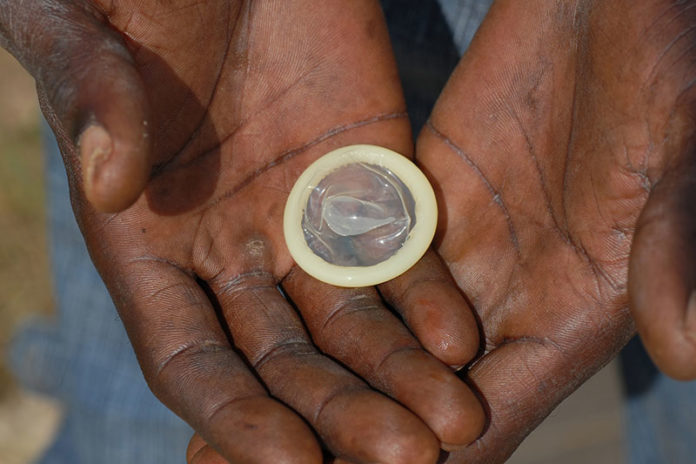The U.S. government will spend more than half a million dollars to provide residents of a tiny, poverty-stricken African nation with condoms. The money, $700,000, will help fund a National Condom Strategy launched by the Ministry of Health in Eswatini, a landlocked south African country smaller than New Jersey. Until recently Eswatini was known as Swaziland but its tyrannical ruler, King Mswati III, changed it so the country could break with its colonial past.
Estwatini is Africa’s only absolute monarchy and most of its population of about 1.4 million lives in poverty with the world’s highest rate of AIDS and HIV. King Mswati however, leads an openly posh lifestyle and has15 wives, according to an African news report that lists all their names. The king has an annual budget of $61 million, owns two private jets and several fancy cars, including a $625,000 Rolls Royce and a $500,000 Maybach 62. He is also a renowned violator of human rights who has been blasted by various international groups over the years. Just last month Eswatini’s National Commissioner of Police announced that social media critics of the king will be hunted down and arrested. Around the same time, human rights advocates were arrested for denouncing King Mswati’s oppressive, dictator-like policies.
None of this is stopping Uncle Sam from cutting a fat check for the African nation’s condom endeavor, created in 2018 to improve access to quality and affordable male and female condoms for all sexually active individuals in order to prevent HIV and other sexually transmitted infections as well as “unintended pregnancies.” Among the key populations targeted by Eswatini’s National Condom Strategy are “men who have sex with men, sex workers, their clients, and their partners,” according to the Ministry of Health document, because they have the highest incidence of HIV. “Thus, a successful prevention program for the country is crucial and must account for this unique HIV infection context,” the document states, adding that a key strategy to achieve the project’s goal includes hiring “experts in condom programming.”
The U.S. government already funds 90% of public sector condoms in Eswatini through various programs that distribute them to target populations. However, “condom promotion is currently unstructured,” the grant announcement says, and needs “structured and consistent approaches.” Evidently, the U.S.-funded condoms are randomly distributed at retail outlets and health facilities but that isn’t enough. Among the goals is to “centralize all condom storage” at the African nation’s medical stores and consolidate support for condom promotion resources to coordinate and target their use. “To ensure sustainability of condom distribution and access in Eswatini, there is a need to increase the commercial sector market share for those willing to buy condoms and target the free condoms to those unable to afford them,” according to the U.S.
The $700,000 that the U.S. is dedicating to this cause will be distributed to regional and international organizations interested in working with condom programming, according to the grant announcement. The money will flow through the United States Agency for International Development’s (USAID) African regional division, which is dedicated to addressing the HIV/AIDS crisis and mitigating food insecurity and supporting democratic processes. Besides having the world’s highest rate of HIV infection—26%—Eswatini is facing a “staggering pandemic” of Tuberculosis that has lowered life expectancy to a mere 50 years, according to USAID. The agency has given Africa billions of dollars in aid, including several billion to a scandal-plagued initiative to combat Ebola. In 2018 Judicial Watch reported that two Congolese men were federally indicted for stealing loads of malaria drugs sent to Africa by American taxpayers and selling them on the black market. Years earlier a mainstream newspaper published a scandalous exposé (“Thieves Hijacking Malaria Drugs in Africa”) detailing how organized networks steal large quantities of U.S.-funded malaria drugs that end up for sale at street markets throughout Africa. At the time they had a street value of about $60 million.






























